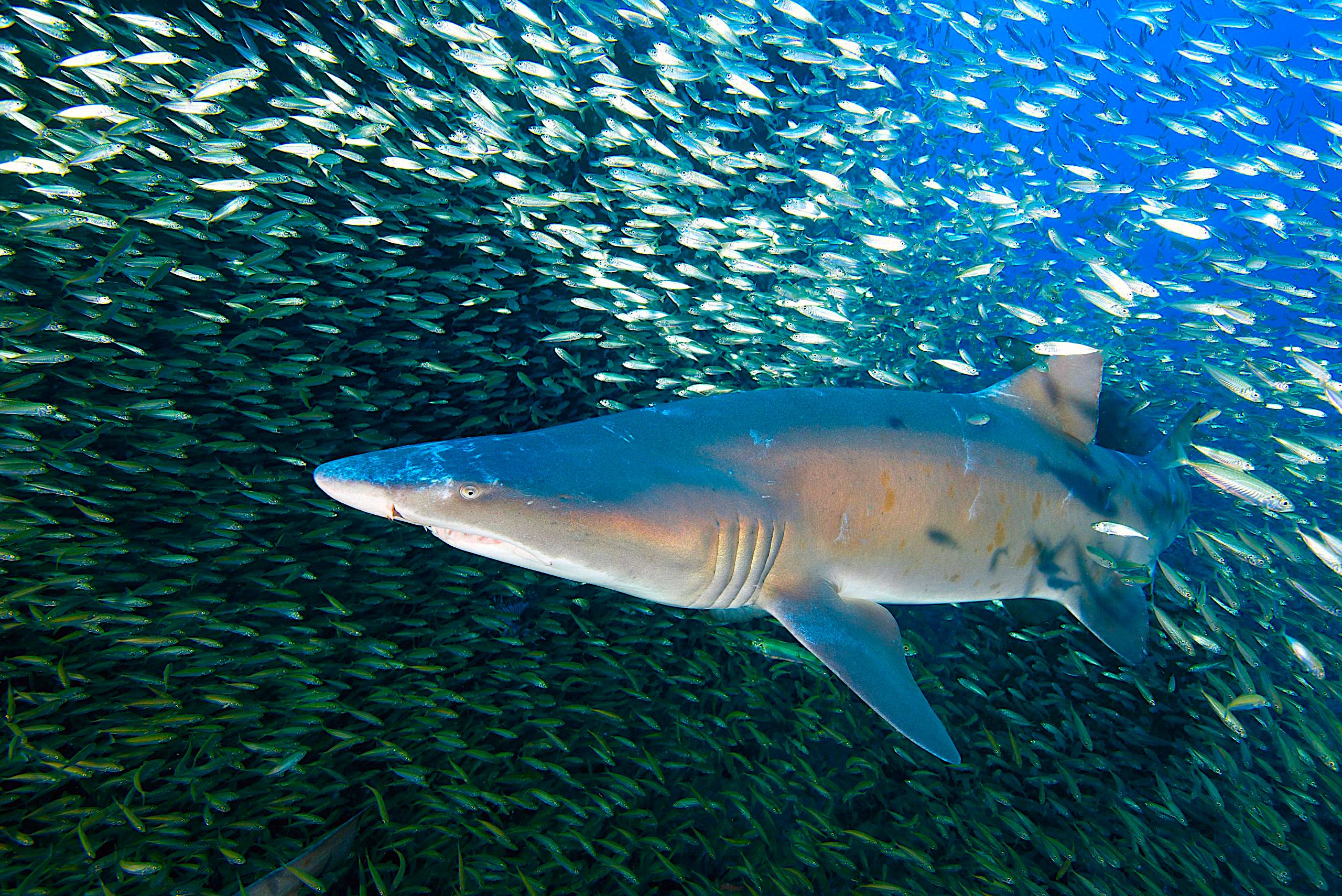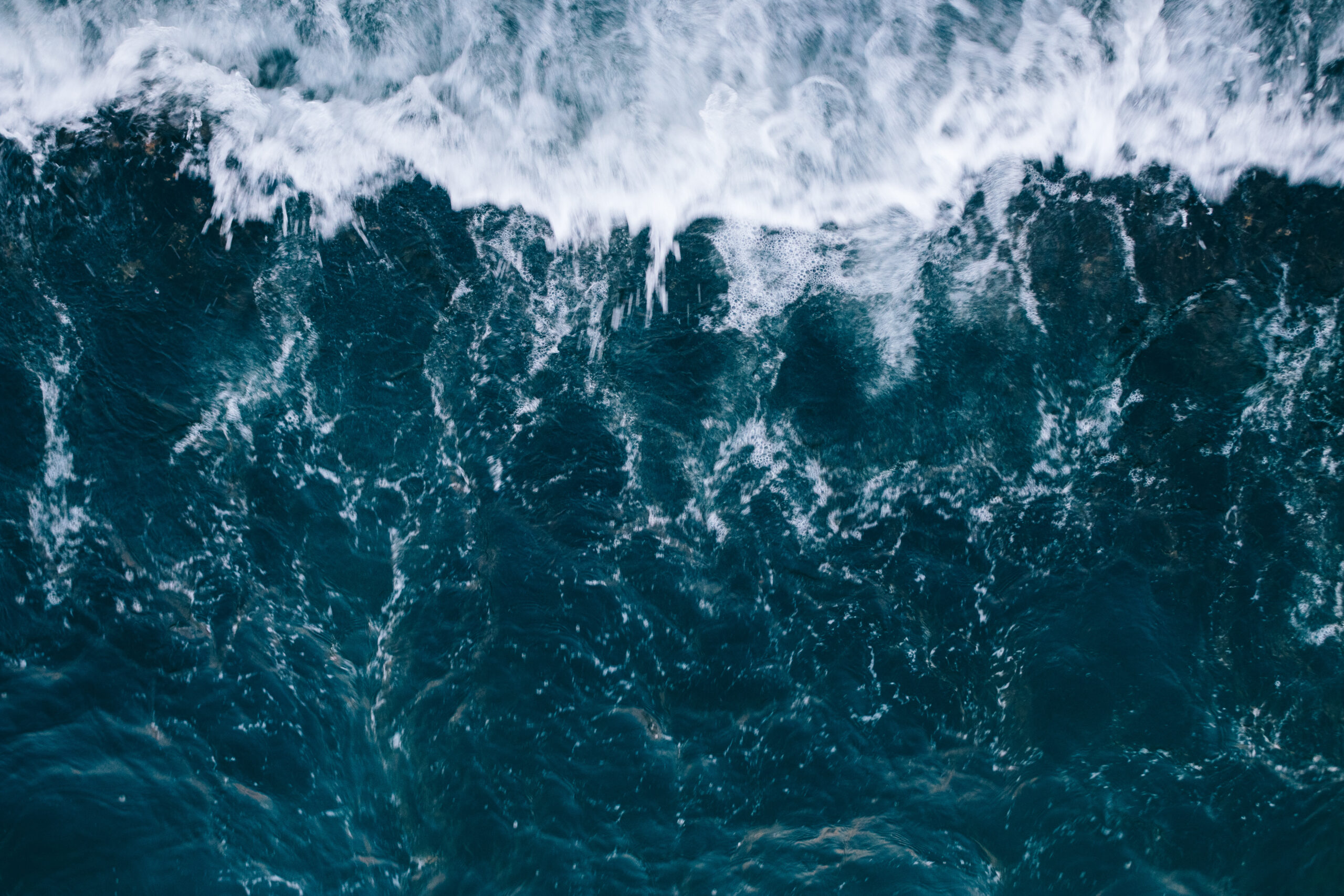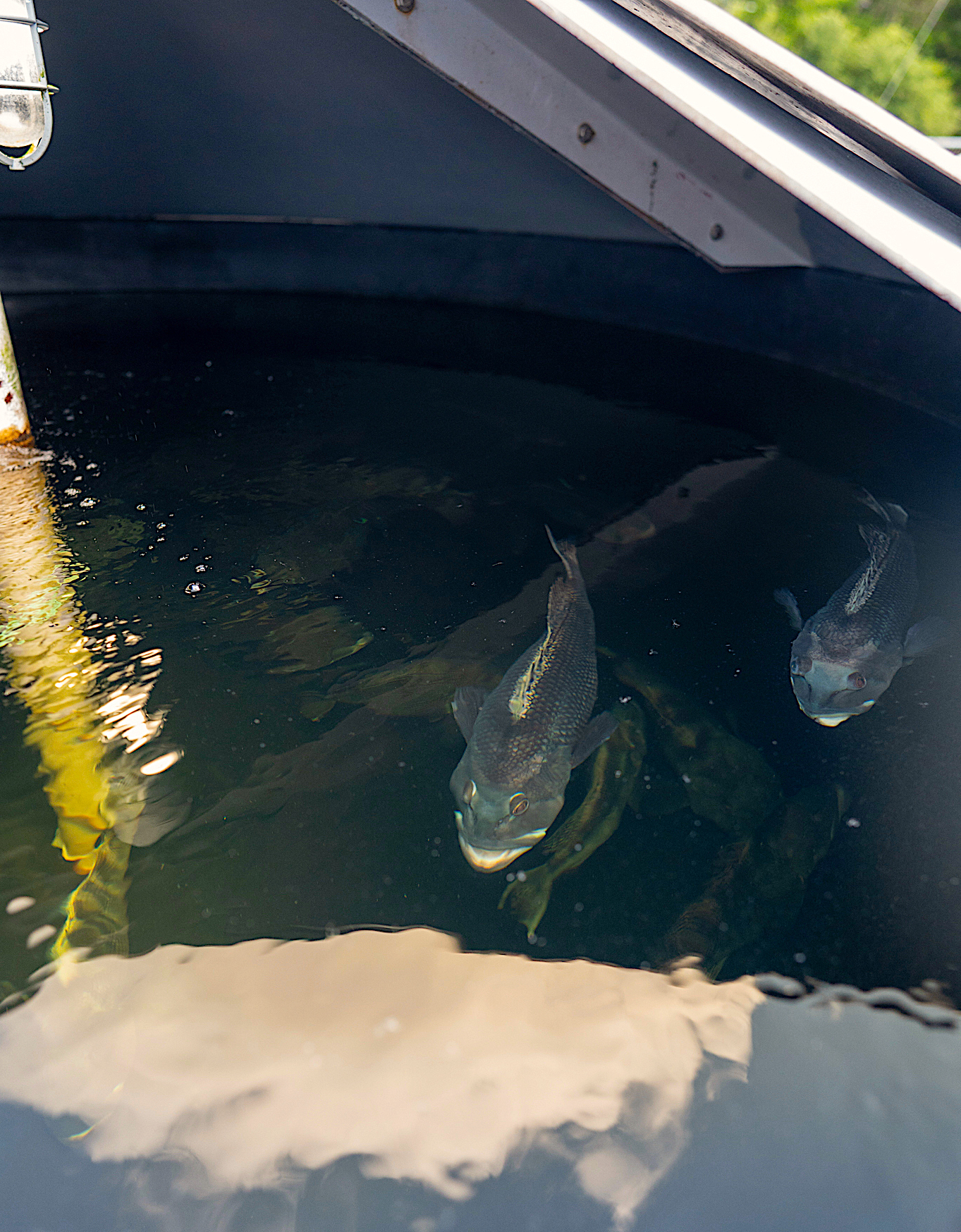Ecofriendly Solutions: Social Media for Sharks
A new study shows that YouTube can serve as a conservation management tool when it comes to misunderstood wildlife.

As top predators who help keep the food webs of their ecosystems in balance, sharks provide many key ecological and economic benefits.
Sharks also are a food source both in our country and, especially, in Asia. However, in many fisheries several species are over-exploited.
The news media can influence our attitudes towards sharks, both positively and negatively. The media often depicts sharks as violent killers that actively seek out opportunities to harm humans; of 300 U.S. and Australian news articles about sharks, over half included references to shark attacks, whereas only 11% focused on shark conservation.
In our own backyard, North Carolina has been home to several memorable and high-profile shark encounters over the years — including some in Brunswick County, when North Carolina Sea Grant quickly dispatched Shark Sense brochures to area beaches.
Not surprisingly, fear of sharks persists, even in places where overall attitudes are the most positive. But would viewing shark-related YouTube videos affect people’s tolerance of sharks?
THE STUDY
To understand how viewing shark-related YouTube videos may impact human perception of sharks and shark management, researchers identified and surveyed residents of North Carolina, where about 50 species of sharks can be found.
The study employed framing theory, which suggests that the ways in which we present information will influence both how people process it and their resulting actions. The team randomly assigned 335 participants one of two video treatments that framed sharks either positively or negatively.
THE FINDINGS
As hypothesized, each video treatment affected tolerance for sharks in line with its framing. Positive framing caused a 130% increase in acceptance of sharks, and negative framing brought an 18% decrease in acceptance of sharks. The study also found that a college education was a good predictor of acceptance of sharks.
These findings suggest positive messages about sharks on social media promote tolerance of sharks and can influence public acceptance of conservation goals. This reveals an opportunity for wildlife professionals and communicators to counteract the negative representations of sharks in popular media and film, particularly through YouTube, which people can use quickly and cheaply.
Lauren D. Pharr is an award-winning science communicator with North Carolina Sea Grant, contributing editor for Coastwatch, Ph.D. student at NC State University, and 2021-2022 Global Change Fellow with the Southeast Climate Adaptation Science Center. She co-authored the scientific study behind this story.
“Social Media for Sharks” originally appeared in the award-winning HookLineScience.com.
- Categories:


